Books
What Occurs to Our Brains When We Learn?
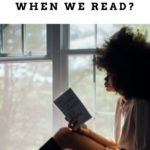
The human mind is, in my view, the weirdest and most fascinating factor on this world. This would possibly sound like a great previous human superiority advanced blended in with some narcissism, however in my protection, I’m solely human. Nevertheless, the explanation why the mind has fascinated me has extra to do with self-awareness of the irony of the human situation, fairly than a self-obsession with my very own mind. The mere incontrovertible fact that our total species has advanced and survived till this level, each in opposition to nature and in opposition to one another, is absurd. Issues get even weirder once you understand that a variety of the issues that we’ve got claimed differentiate us from different animal species are in some ways unnatural to our brains, like studying. For a lot of centuries, be it as a method to justify colonialism or exploitation of nature and animals, people have pointed to studying and writing as traits of superiority. But when studying and writing are irregular actions for the human mind, how effectively can most of us really learn? And are most of us studying in addition to we predict we’re? All of the solutions to those questions are neatly held in our mind’s evolutionary traits.
Books Concerning the Studying Mind
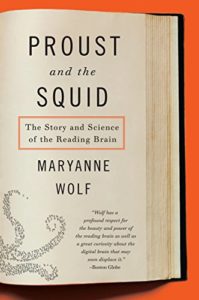 Proust and the Squid by Maryanne Wolf takes a deep dive into the studying mind, the way it advanced, and, extra particularly, all of the steps it has to take to do what’s seemingly unnatural for it. The mind was not made to learn; by way of the evolution of language and signal communication, we pressured it to. Even so, we’ve got not acquired it as an evolutionary trait, like talking or studying our first language. As an alternative, we’ve got to show every new era to attach the right synapsis over again. Our mind nonetheless has to leap by way of a number of hoops to totally perceive phrases on a web page. Wolf’s research even present that what we’ve got come to know as studying disabilities, are in truth the organic norm; the truth that you may learn, and learn to learn in keeping with your age, is the actual mutation.
Proust and the Squid by Maryanne Wolf takes a deep dive into the studying mind, the way it advanced, and, extra particularly, all of the steps it has to take to do what’s seemingly unnatural for it. The mind was not made to learn; by way of the evolution of language and signal communication, we pressured it to. Even so, we’ve got not acquired it as an evolutionary trait, like talking or studying our first language. As an alternative, we’ve got to show every new era to attach the right synapsis over again. Our mind nonetheless has to leap by way of a number of hoops to totally perceive phrases on a web page. Wolf’s research even present that what we’ve got come to know as studying disabilities, are in truth the organic norm; the truth that you may learn, and learn to learn in keeping with your age, is the actual mutation.
I used to be fascinated by Proust and the Squid and began looking for out different books by Maryanne Wolf, similar to Reader Come Dwelling, about studying within the digital age, in addition to a couple of different articles on the neuroscience of studying. I wished to take a look at my mind as I’m most happy with it; when it’s creating huge worlds in my creativeness and transporting me; once I felt most like myself: whereas studying.
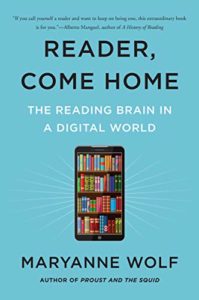 I feel it’s important to begin with the supply materials, since I primarily centered the analysis for this text on Wolf’s books. That is in no way a deep dive into neuroscience; if you need that, I like to recommend studying Wolf herself and the various sources she cites. I used to be a Comp Lit main in school; you didn’t come to the best place when you wished a medical article. Nevertheless, medical points have at all times fascinated me—extra particularly, those who I see as having a big impact on our social sphere. It’s attention-grabbing to use studying to that class, as a result of it has been such an neglected a part of human historical past for therefore lengthy that it virtually feels counterintuitive to discover it as a medical anomaly. Total cultures have been shunned and discredited for his or her lack of written custom, and studying is what number of highly effective concepts have come to carry a spot in a world understanding of human nature.
I feel it’s important to begin with the supply materials, since I primarily centered the analysis for this text on Wolf’s books. That is in no way a deep dive into neuroscience; if you need that, I like to recommend studying Wolf herself and the various sources she cites. I used to be a Comp Lit main in school; you didn’t come to the best place when you wished a medical article. Nevertheless, medical points have at all times fascinated me—extra particularly, those who I see as having a big impact on our social sphere. It’s attention-grabbing to use studying to that class, as a result of it has been such an neglected a part of human historical past for therefore lengthy that it virtually feels counterintuitive to discover it as a medical anomaly. Total cultures have been shunned and discredited for his or her lack of written custom, and studying is what number of highly effective concepts have come to carry a spot in a world understanding of human nature.
The jumping-off level when trying on the studying mind is that studying is an unnatural cognitive course of. It signifies that it have to be taught actively, in a different way from language. Language is a pure course of for many people and might be seen as a cognitive operate developed by way of evolution. Studying, then again, could be very very similar to different practice-based information or inventive pondering. It’s one thing that doesn’t come naturally for most individuals, and is deeply influenced by your social situation and studying skills.
Class ID: 479
True Story E-newsletter
Join True Story to obtain nonfiction information, new releases, and must-read forthcoming titles.
Thanks for signing up! Regulate your inbox.
By signing up you comply with our phrases of use
In Proust and The Squid, Wolf closely focuses on studying disabilities similar to dyslexia and the way profoundly misunderstood they’re by the academic group. Youngsters have a extra versatile mind than adults, they usually can wire their neural connections quicker and to higher success. So, one thing deeply pure to the mind is realized by rewiring already preexisting types of human cognition, similar to seeing or listening. If you wish to get into the literal points of it, youngsters use a extra vital a part of their brains when studying than adults do. They’re confronting a number of totally different boundaries of proficiency that transcend merely decoding symbols. Essential pondering and understanding the which means behind a phrase or a textual content are sometimes neglected in youngsters studying the way to learn, particularly in the event that they haven’t any bother decoding alphabetic characters and phonetics.
However Wolf argues that is one thing that ought to be paid higher consideration to. Many youngsters develop excessive functioning studying disabilities, which don’t permit them to grow to be proficient readers later in life. They can not perceive hidden meanings or allegories and even submerge themselves within the plot of a story. However as a result of they’re seen as having the ability to learn when requested to, they don’t seem to be made to develop their studying brains additional—thus making a barrier between studying as a bodily act and as a psychological one.
This actually bought me enthusiastic about the various causes individuals in my life have instructed me why they don’t wish to learn or want they might. In some ways, if we aren’t influenced and pushed by major caretakers or academics to transcend our studying capabilities as younger youngsters, we’d get caught. Studying, like most issues in life, is developed by way of a behavior. Chances are high that you probably have a love of studying or take into account your self to be a voracious reader, you had somebody train you that appreciation as a younger youngster—somebody who taught you in regards to the many worlds hidden behind phrases.
Extra just lately, I learn Reader Come Dwelling by Wolf, wherein she discusses the doable evolutions studying would possibly take because of the overwhelming presence of digital know-how. It isn’t by any means a “ereaders suck” form of factor, however fairly how our cognitive understanding of studying would possibly change as a result of we’re uncovered to quicker info and media always. If you wish to learn about what occurs in your mind, I feel this ebook is way more accessible than Proust and The Squid, which is far denser and focuses on the various studying challenges Wolf has encountered throughout her analysis.
 In Reader Come Dwelling, Wolf writes in letters to future readers, scientists, and writers, not not like Six Memos for The Subsequent Millennium by Italo Calvino. She explores the challenges that future readers would possibly face due to the sheer quantity of obtainable info. Going again to her first concepts of the evolution of studying and its many levels to achieve actual proficiency, Wolf speculates in regards to the doable evolutionary developments relating to the event of essential pondering and creativeness, focus—or fairly, the dearth of it—being step one.
In Reader Come Dwelling, Wolf writes in letters to future readers, scientists, and writers, not not like Six Memos for The Subsequent Millennium by Italo Calvino. She explores the challenges that future readers would possibly face due to the sheer quantity of obtainable info. Going again to her first concepts of the evolution of studying and its many levels to achieve actual proficiency, Wolf speculates in regards to the doable evolutionary developments relating to the event of essential pondering and creativeness, focus—or fairly, the dearth of it—being step one.
This bought me pondering so much about my present studying habits. Though I fortunately haven’t skilled the various studying blocks lots of people are having throughout these unsure occasions, I’ve observed a pointy lower in my consideration span and my means to submerge myself in tales. Overwhelming ideas always plague me, and I examine social media and the information way more than I often did. One other attention-grabbing private improvement that I observed when studying Reader Come Dwelling was how psychologically I had been way more keen to learn on my laptop and ereader than I beforehand was. The sense of being related and being productive has grow to be intrinsically linked to my digital connection, even when I’m studying one thing for pleasure. In distinction, my precise work efficiency and inventive pondering have declined.
My Struggles As A Reader
I knew it wasn’t a query of my routine, since I just lately explored it as an element of my studying and inventive productiveness. My studying habits and display utilization had additionally not modified a lot to warrant a doable cognitive rationalization. So I went searching for solutions past my mind’s physiology. In any case, studying as an act is way more poetic and summary than a purely mechanical one. I believed I needed to attempt to perceive what was occurring in my thoughts to know why my cognitive focus had modified. Enter Zora Neale Hurston and Alberto Manguel, two wildly totally different authors who’ve just lately had an unlimited influence on my studying life.
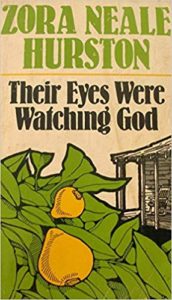 Hurston has been certainly one of my favourite authors since my adolescence when, I might say, I achieved full proficiency within the English language (I’m a Portuguese native speaker). Hurston wrote most of her fiction within the Southern U.S. dialect, which means her writing is phonetically correct to American Southern accents. So, once I first learn Their Eyes Have been Watching God, it took me a number of months to get by way of it. I reread the ebook instantly after ending a minimum of thrice as a result of I couldn’t totally perceive what was occurring on the web page. This was in no way the primary novel I learn in English, and by that point my studying was fairly evenly divided between the 2 languages I spoke, however I simply didn’t appear capable of perceive what was on the web page. I may learn it if requested to, even when I chanced on the southern accent it requires. Nonetheless, my thoughts couldn’t focus for lengthy intervals on it, or totally submerge itself to grasp what was on the web page, and the emotional influence of what was occurring in a specific scene. Now I see, after having learn Wolf, that I had reached the bounds of my English studying skills on the time; I used to be proficient, however I used to be not fluent. My studying mind had not been ready to learn in a southern dialect, it had solely developed connections to an easy language with out a lot model or metaphor. I may learn it, however not realize it to the fullest.
Hurston has been certainly one of my favourite authors since my adolescence when, I might say, I achieved full proficiency within the English language (I’m a Portuguese native speaker). Hurston wrote most of her fiction within the Southern U.S. dialect, which means her writing is phonetically correct to American Southern accents. So, once I first learn Their Eyes Have been Watching God, it took me a number of months to get by way of it. I reread the ebook instantly after ending a minimum of thrice as a result of I couldn’t totally perceive what was occurring on the web page. This was in no way the primary novel I learn in English, and by that point my studying was fairly evenly divided between the 2 languages I spoke, however I simply didn’t appear capable of perceive what was on the web page. I may learn it if requested to, even when I chanced on the southern accent it requires. Nonetheless, my thoughts couldn’t focus for lengthy intervals on it, or totally submerge itself to grasp what was on the web page, and the emotional influence of what was occurring in a specific scene. Now I see, after having learn Wolf, that I had reached the bounds of my English studying skills on the time; I used to be proficient, however I used to be not fluent. My studying mind had not been ready to learn in a southern dialect, it had solely developed connections to an easy language with out a lot model or metaphor. I may learn it, however not realize it to the fullest.
Not too long ago I picked up the brand new assortment of Hurston’s quick tales, written throughout her time residing in Harlem. Within the introduction, the editor advises the reader that this assortment ought to ideally be learn out loud or listened to if you need to have the whole expertise of Hurston’s highly effective writing. I took their recommendation and proceeded to get the audiobook. I knew from the second I began rereading her work that I had misplaced some a part of that means I acquired so a few years in the past. Nonetheless, it quickly got here again to me as soon as I may hearken to the audiobook narrator. Their magnificent efficiency helped me mimic the linguistic sounds of Hurston’s characters in my thoughts, and I gained a extra fruitful understanding of my studying. However why was that? Why is it that as readers we’ve got to return, we’ve got to search out ourselves working to enter a story at the same time as adults?
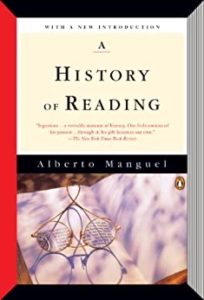 For the solutions to that, I turned to Argentinian creator Alberto Manguel, whose major focus as a author is the act of studying, and extra particularly the love of studying. After realizing, by way of Wolf’s writing, the various shortcomings a reader’s thoughts can have, I made a decision to select up two of Manguel’s books to research my newfound self-awareness. I reread certainly one of my favourite collections, A Reader on Studying, and picked up for the primary time Historical past of Studying. Manguel is a really autobiographical author, and due to it, he’s actually a grasp of the literary essay. He doesn’t shrink back from his personal expertise to make his level extra credible, and in doing so, he creates a common connections like no different essayist I’ve come throughout. One among my favourite essays relating to studying is “The Voice That Says ‘I’”, wherein he recounts his first expertise understanding himself as an elemental a part of the storytelling course of as a younger youngster. He explores authorship and possession of tales once we insert themselves in them; the author’s intent is dwindled however by no means forgotten, as a result of what a younger reader expertise is a narrative itself, thus turning into a part of it.
For the solutions to that, I turned to Argentinian creator Alberto Manguel, whose major focus as a author is the act of studying, and extra particularly the love of studying. After realizing, by way of Wolf’s writing, the various shortcomings a reader’s thoughts can have, I made a decision to select up two of Manguel’s books to research my newfound self-awareness. I reread certainly one of my favourite collections, A Reader on Studying, and picked up for the primary time Historical past of Studying. Manguel is a really autobiographical author, and due to it, he’s actually a grasp of the literary essay. He doesn’t shrink back from his personal expertise to make his level extra credible, and in doing so, he creates a common connections like no different essayist I’ve come throughout. One among my favourite essays relating to studying is “The Voice That Says ‘I’”, wherein he recounts his first expertise understanding himself as an elemental a part of the storytelling course of as a younger youngster. He explores authorship and possession of tales once we insert themselves in them; the author’s intent is dwindled however by no means forgotten, as a result of what a younger reader expertise is a narrative itself, thus turning into a part of it.
Nevertheless, Manguel’s most attention-grabbing essay on the event of studying is “How Pinocchio Discovered to Learn.” On this essay, he not solely summarizes his argument on why studying is a developmental subject, but additionally completely intersects with Wolf’s work, bringing into the dialogue the clear cultural and political the reason why studying is a vital ability to grasp past practicalities, which he clearly outlines in three factors: “First, the mechanical technique of studying the code of the script. Second, the educational of the syntax by which such a code is ruled. Third, the educational of how the inscriptions in such a code can serve to assist us know in a deep, imaginative, and sensible method ourselves and the world round us.”
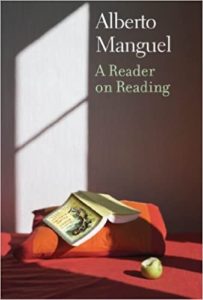 In utilizing Pinocchio for instance—the Collodi story, not the Disney adaptation—Manguel explores the fragility of the instructing of studying. Once we are taught the way to learn merely as one would count on a toddler to learn what’s on the web page in entrance of them and know chair is an object, we’re solely scratching the floor of the mind’s functionality to develop new connections. The essential studying, chargeable for unbiased thought and creativeness, is just actually dominated if that’s the case practiced.
In utilizing Pinocchio for instance—the Collodi story, not the Disney adaptation—Manguel explores the fragility of the instructing of studying. Once we are taught the way to learn merely as one would count on a toddler to learn what’s on the web page in entrance of them and know chair is an object, we’re solely scratching the floor of the mind’s functionality to develop new connections. The essential studying, chargeable for unbiased thought and creativeness, is just actually dominated if that’s the case practiced.
Wolf’s work is especially devoted to breaking this barrier in order that individuals who can learn grow to be readers. You and I’d take into account ourselves readers merely for our love of books. Nonetheless, the quintessential a part of that’s our capability to create new neurological connections in our brains that defy survival intuition or practical pondering, past the easy which means of language. Manguel once more makes use of this for instance of Pinocchio’s use of language, in addition to the characters in Alice in Wonderland. Alice is a realist however an incisive thinker who understands that relativity and creativity in language should not the identical issues. She thus understands the ability of phrases, whereas for the characters in Pinocchio information, particularly language-based training, is disdained and sometimes misrepresented.
As he factors out on this passage: “Language can permit the speaker to stay on the floor of thought, mouthing dogmatic slogans and commonplaces in black and white, transmitting messages fairly than which means, putting the epistemological weight on the listener (as in ‘you realize what I imply?’). It might probably try to re-create an expertise, give form to an thought, discover in-depth, and never solely the instinct of a revelation on the floor. For the opposite boys [Pinocchio’s classmates], this distinction is invisible. For them, the truth that Pinocchio speaks ‘like a printed ebook’ is sufficient to label him an outsider, a traitor, a recluse in his ivory tower.”
So, the studying mind is extra highly effective and complicated than a easy skill-building, or innate trait of people that differs us from different species. As I stated at first, I’m not a neuroscientist. Nevertheless, the methods wherein biology and philosophy intersect relating to studying are fascinating to me, a discipline I can see myself exploring extra on daily basis as I attempt to consider what I see once I learn and why I see it critically. In these unsettling occasions when studying could be a supply of each solace and nervousness, I feel it’s vital to know how our thoughts and physique collide. In doing so, perhaps we are able to get some additional perception into ourselves and break vicious cycles of understanding studying as a sensible and standardized subject.
Studying ought to be appreciated and understood by way of the superb evolutionary toes of the mind that it’s. Extra so, it shouldn’t be exclusionary of those that require totally different approaches to studying it. I feel if many extra governments and education programs centered on combining the scientific background to studying and philosophical reasoning for instructing it, we might have a society with a a lot better understanding of every particular person’s studying curve. However most of all it was attention-grabbing exploring my very own studying challenges, I didn’t discover all of the solutions, however nonetheless it was useful to know how my mind acted once I was studying.



